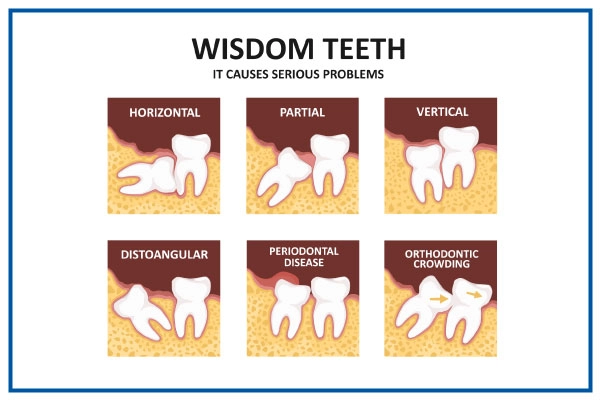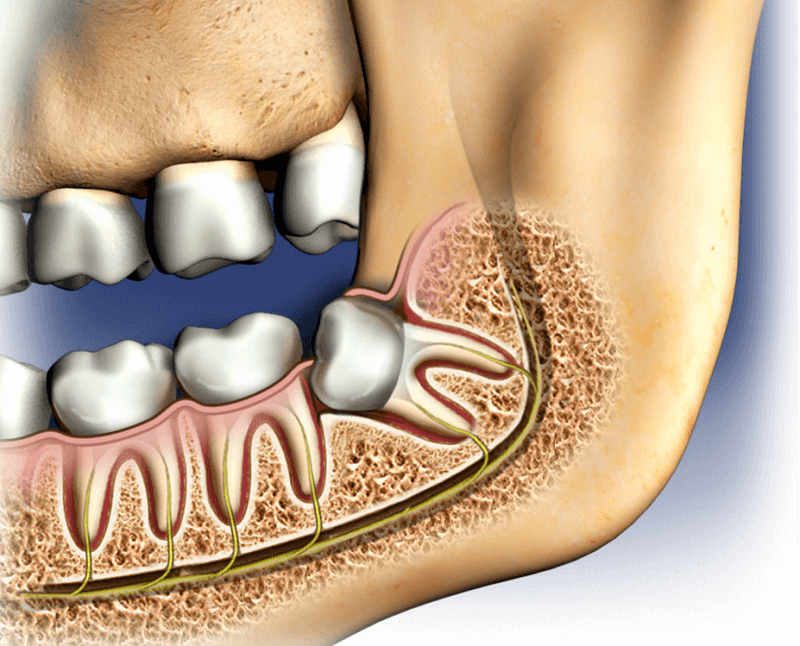Wisdom Teeth Removal Aspendale: Post-Procedure Care and Healing Tips
Wisdom Teeth Removal Aspendale: Post-Procedure Care and Healing Tips
Blog Article
Exploring Different Sedation Options for a Comfortable Knowledge Pearly Whites Removal Experience
When confronted with the prospect of having actually knowledge teeth removed, ensuring a pain-free and comfortable experience is vital. Using sedation during such treatments has actually come to be significantly typical to alleviate stress and anxiety and pain. With a variety of sedation options readily available, from regional anesthetic to basic anesthesia, each approach offers varying degrees of leisure and discomfort control. Understanding the distinctions between these alternatives and their suitability for private needs is important in guaranteeing a comfy and smooth knowledge teeth removal procedure. wisdom teeth removal aspendale.
Local Anesthetic
Neighborhood anesthetic is a frequently utilized approach for numbing particular locations of the mouth during wisdom teeth removal procedures. By administering a regional anesthetic, such as lidocaine, a dental expert can make certain that the client stays pain-free and comfortable throughout the removal procedure.
One of the main benefits of neighborhood anesthetic is its targeted numbing result, which indicates that just the specific location being dealt with is impacted. This local method minimizes the risk of systemic negative effects and permits a quicker recovery post-procedure. Additionally, regional anesthesia is thought about to be a risk-free and routine method in dentistry, with very little risks involved when provided by a qualified specialist.
Nitrous Oxide
Nitrous oxide, generally known as giggling gas, is a form of sedation commonly utilized in dentistry to help individuals loosen up during oral procedures. This sedation option permits the client to stay aware and responsive throughout the treatment while feeling at convenience and comfy.
Additionally, nitrous oxide is known for its rapid recuperation time. When the mask is eliminated, the impacts of the gas disappear swiftly, enabling individuals to resume their typical tasks without lingering sedative effects. This makes nitrous oxide a hassle-free choice for those that need to drive themselves home after the oral appointment. Furthermore, laughing gas is appropriate for patients of any ages, making it a flexible sedation choice for knowledge teeth removals and various other oral treatments.
Dental Sedation
Oral sedation, a pharmacological technique utilized in dentistry, involves the management of sedative medicines by mouth to generate a relaxed state during oral procedures. This type of sedation is frequently used for clients going through knowledge teeth extraction to alleviate anxiousness and discomfort. The drugs prescribed for oral sedation come from a class of medicines called benzodiazepines, which have sedative, anxiolytic, and amnesic properties. Commonly, the client takes the recommended medication prior to the procedure, allowing sufficient time for the sedative impacts to hold.
Among the main benefits of oral sedation is its convenience of administration. Unlike intravenous sedation, dental sedation does not call for injections or needles, making it an extra comfortable choice for people with a worry of needles. Additionally, dental sedation is thought about safe and here effective when carried out by qualified oral professionals. Nonetheless, it is crucial for people to comply with pre-operative guidelines offered by their dental professional, such as refraining from drinking or consuming prior to the procedure to ensure the sedative medicine works as meant.
IV Sedation
Provided intravenously by experienced medical professionals, IV sedation is an effective technique made use of to induce a regulated state of deep relaxation and unconsciousness throughout dental procedures. Unlike oral sedation, which can be unpredictable in its effects, IV sedation enables exact control over the degree of sedation, making it a suitable selection for complicated procedures like wisdom teeth extractions.
During IV sedation, a sedative medication is delivered directly right into the bloodstream with a capillary, enabling it to work promptly and successfully. This method guarantees that the individual continues to be comfortable and not aware of the procedure while still keeping essential functions such as breathing and heart price.
Among the primary benefits of IV sedation is its ability to give a deeper degree of sedation contrasted to various other methods, making it especially suitable for clients with high levels of anxiety or those going through extensive dental work (wisdom teeth removal aspendale). Furthermore, the effects of IV sedation usually disappear progressively after the procedure, lowering the probability of grogginess or lingering negative effects. Generally, IV sedation supplies a secure and reliable choice for ensuring a comfortable and hassle-free experience throughout wisdom teeth extraction

General Anesthetic
Having reviewed the advantages of IV sedation for wisdom teeth extraction, the use of general anesthetic offers an alternate option for clients needing a much deeper degree of unfamiliarity throughout dental procedures. General anesthesia generates a controlled state of unfamiliarity, making sure the person really feels no discomfort or discomfort throughout the extraction process. This technique is particularly valuable for people with severe oral anxiousness, complicated surgical demands, or those going through numerous extractions all at once.
General anesthesia is administered by a qualified anesthesiologist that carefully monitors the person's crucial indications throughout the procedure. It entails using intravenous medications or breathed in gases to induce a state of unconsciousness. While under basic anesthetic, the client will certainly not recognize the Go Here surgical treatment, experience any discomfort, or have any type of recollection of the treatment afterward.
Although general anesthesia is safe when administered by qualified professionals, it lugs a slightly higher threat contrasted to other sedation alternatives - wisdom teeth removal aspendale. Patients thinking about basic anesthesia for wisdom teeth removal must go over the possible threats and benefits with their dental professional or dental cosmetic surgeon to make an educated decision based on their private demands and clinical history

Final Thought
In conclusion, various sedation choices are offered to make certain a comfortable knowledge teeth extraction experience. Neighborhood anesthetic is generally utilized for numbing the certain location, while laughing gas provides leisure and discomfort relief. Oral sedation and IV sedation deal deeper degrees of relaxation, depending upon the person's needs. General anesthetic can be used for extra intricate instances. It is very important to seek advice from your dentist or oral surgeon to figure out the most appropriate sedation option for your procedure.
Nitrous oxide is ideal for clients of all ages, making it a functional sedation choice for wisdom teeth removals and various other oral procedures.

Report this page